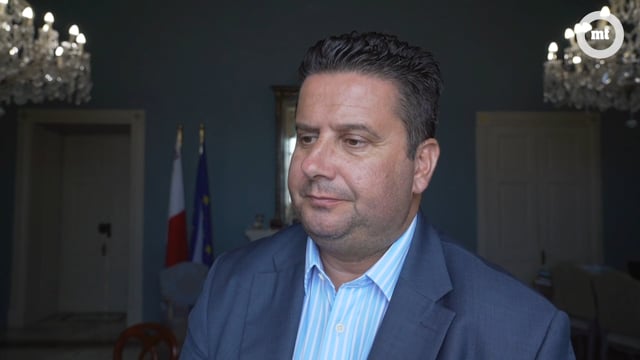[WATCH] Justice Minister reacts to concerns highlighted in EU rule of law report, Daphne inquiry
Edward Zammit Lewis reacts to rule of law report released by the European Commission that notes Malta's progress in tackling good governance issues but flags deep corruption patterns and a lack of prosecution in high-level corruption cases as key concerns


The EU report on rule of law released today has praised Malta for adopting certain reforms, but two major red flags were those relating to deep corruption patterns and a lack of prosecution in high-level corruption cases.
The report signals progress but also puts its finger on matters that still need to be addressed such as the "limited effectiveness" of the Permanent Commission Against Corruption (PCAC) on investigations and the "dependency of the PCAC members' appointment on the Prime Minister."
Talking to MaltaToday, Justice Minister Edward Zammit Lewis described the PCAC as an authority that "barks but doesn't bite." He commented that this has been the nature of the commission since its inception, and is not the fault of the Labour administration.
"If more tools are needed by the commission, they will be given," he said.
A separate concern was that of transparency. Under the previous system the PCAC would report its findings of corrupt practices to the Minister of Justice, with no obligation to follow up with enforcement or prosecution.
Transparency over what cases were being investigated and any recommendations made was also lacking. When confronted on this, Zammit Lewis said that new proposals will see information on corrupt practices going directly to the Attorney General for prosecution instead of the Justice Ministry.
Zammit Lewis said that both him and Internal Affairs Minister Byron Camilleri have a mandate by Robert Abela to implement more reforms and keep prosecution separate from investigations.
The report highlights this separation, noting that prosecution and investigation have in the past been carried out largely by the police force. New reforms however will see the Attorney General overseeing prosecution of offences carrying a conviction of more than two years imprisonment.
The report also notes that the inquiry into the murder of Daphne Caruana Galizia has revealed deep corruption patterns. On the issue of Robert Abela's December limit on the inquiry, Zammit Lewis feels that the time limit imposed is "reasonable."
"The inquiry has been going on for a long time. I’m informed that they have all the facilities and tools needed for there to be closure. We usually talk about justice within a reasonable time [...] In this case, the inquiry needs to be efficient too," he said.
The Caruana Galizia inquiry board had asked the Prime Minister for an extension to its mandate until December. This was given, however, the Caruana Galizia family and the Coucil of Europe rapporteur Pieter Omtzigt have argued the public inquiry is independent from the government and should thus regulate its own term to ensure that the search for truth is thorough.


.png)

.png)



.jpg)




.jpg)






.png)

